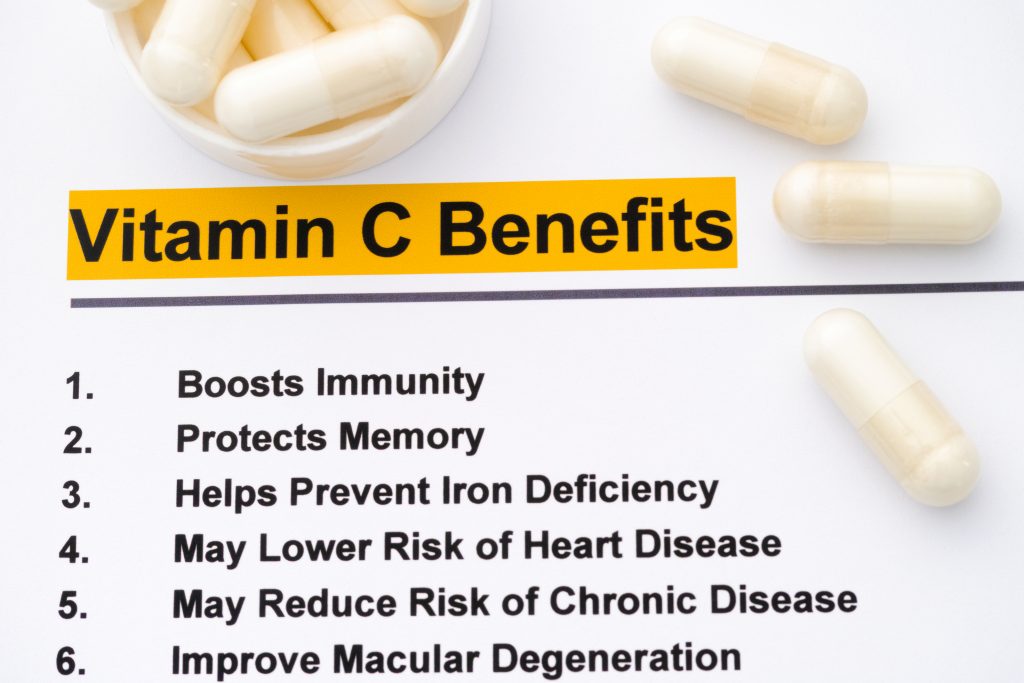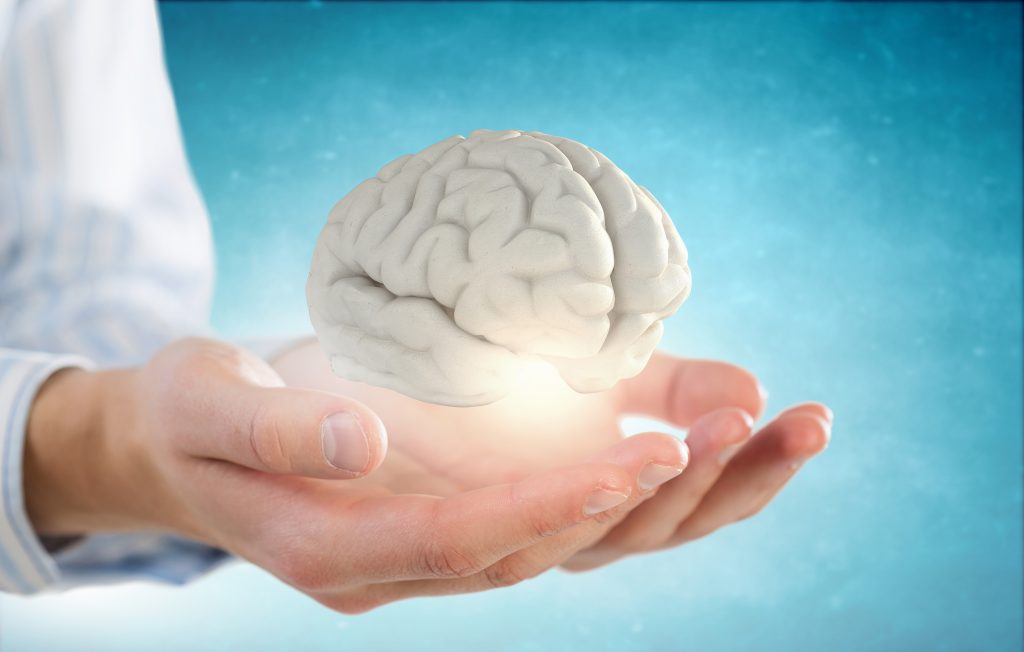Vitamin C is well known for enhancing immunity, including preventing colds and improving mental health. Scientific studies indicate that people who consume foods rich in vitamin C experience less stress as they encounter physical challenges. After we consume vitamin C, it causes the body to dispense neurotransmitters that enhance mood such as dopamine, norepinephrine, and epinephrine. People who lack vitamin C have low synthesis of these neurotransmitters, and can become irritable and stressed.

Vitamin C and Mental Health
A German study measured the stress levels of 120 individuals by letting them perform public speaking while solving math problems. The subjects were given 1000 mg of vitamin C prior to the task. Participants who did not take the vitamin showed elevated cortisol levels and higher blood pressure. Those who took the vitamin showed normal blood pressure levels and said that they did not feel that stressed.
Vitamin C also plays a vital role in maintaining the function and integrity of the central nervous system, including the formation of myelin and maturation of neurons, which protects nerve fibers and repairs neurons. In addition, it acts as a neuromodulator, which influences mood regulation.
Research studies also indicate that free radical damage and oxidative stress can play a part in the pathogenic mechanisms underlying several neuropsychological disorders including depression.
The American Journal of Psychiatry published a study stating that low levels of vitamin C were closely related to depression in the elderly. Another study published by McGill University found that administering vitamin C twice a day improved the mood of hospital patients. Vitamin C is also linked to promoting health for people suffering from bipolar disorder and anxiety.

The Brain consumes a lot of vitamin C. Brain concentrations of vitamin C are higher than those of the rest of the body. It maintains vitamin C levels for a longer period of time after the body depletes them. That’s because metabolic furnaces in the neurons churn through glucose to power one’s movements and feelings. Vitamin C also works as an antioxidant. It surrenders electrons for the purpose of neutralizing rogue oxygen molecules which are emitted in the process. These are the free radicals that ruin DNA and cause cells to age.
Vitamin C also plays a role in the maturation and differentiation of neurons and in forming the myelin sheath that expedites impulse transmission and protects neurons. Thus, vitamin C is essential for cognitive performance and is also a cofactor in synthesizing several neurotransmitters. It plays a vital role in converting dopamine to serotonin. It also modulates the release of neurotransmitters in nerve cells. Vitamin C is also found in collagen, which is a stabilizing force for bones, teeth, and blood vessels. It helps ensure that the integrity of blood vessels retain their integrity as an aspect of cognitive capacity, particularly as people age.
In a review of fifty studies of Brain function and vitamin C levels conducted between1980 and 2017, Australian researchers discovered that there was a striking relationship between mental function and vitamin C status. A questionnaire, known as the Mini-Mental State Examination (MMSE) measured the relationship.
In the study, the individuals that were cognitively intact had higher blood concentrations of vitamin C than the individuals who were cognitively impaired. Among the individuals who were cognitively intact, the levels of vitamin C in the blood had a correlation with cognitive ability. There was no linear correlation seen in people with cognitive impairment.
Factors such as exposure to toxins caused by air pollution and smoking as well as drinking alcohol make extra demands for vitamin C by placing the body under oxidative stress. Studies show that conditions like depression, fatigue, and poor healing of wounds happen when vitamin C levels are inadequate.
References
Bundrant, M. vitamin C and Its Key role in mental health. Psych Central. https://blogs.psychcentral.com/nlp/2017/01/vitamin-c- nd-its-key-role-in-mental-health/
Marano, H. The Cognitive Benefits of vitamin C. Psychology Today. https://www.psychologytoday.com/us/articles/201801/the- cognitive-benefits-vitamin-c
Got Stress? You Need vitamin C. adrenalfatigue.org. https://adrenalfatigue.org/got-stress-you-need-vitamin-c/
Vitamin C: Essential for stress and Adrenal Function. adrenalfatigue.org. https://adrenalfatigue.org/vitamin-c-adrenal-function-stress/
Dr. Casey Sinclair, D.C. is a leading holistic healthcare doctor trained in functional medicine. He has extended his reach around the world by co-founding Family Health Advocacy, a health advocacy group lead by doctors and health professionals providing resources and education on global health matters. He has been fortunate to act as health a consultant to some of the largest companies in North America and as a professional speaker he’s had the privilege of speaking to thousands of people. Dr. Casey is an advocate for people suffering with chronic pain and fibromyalgia and has authored a book on the subject.


Important to mention what are high vitamin C foods (& for those avoiding too much sugar): parsley, kale, broccoli, lemons, limes, Brussel sprouts, strawberries.